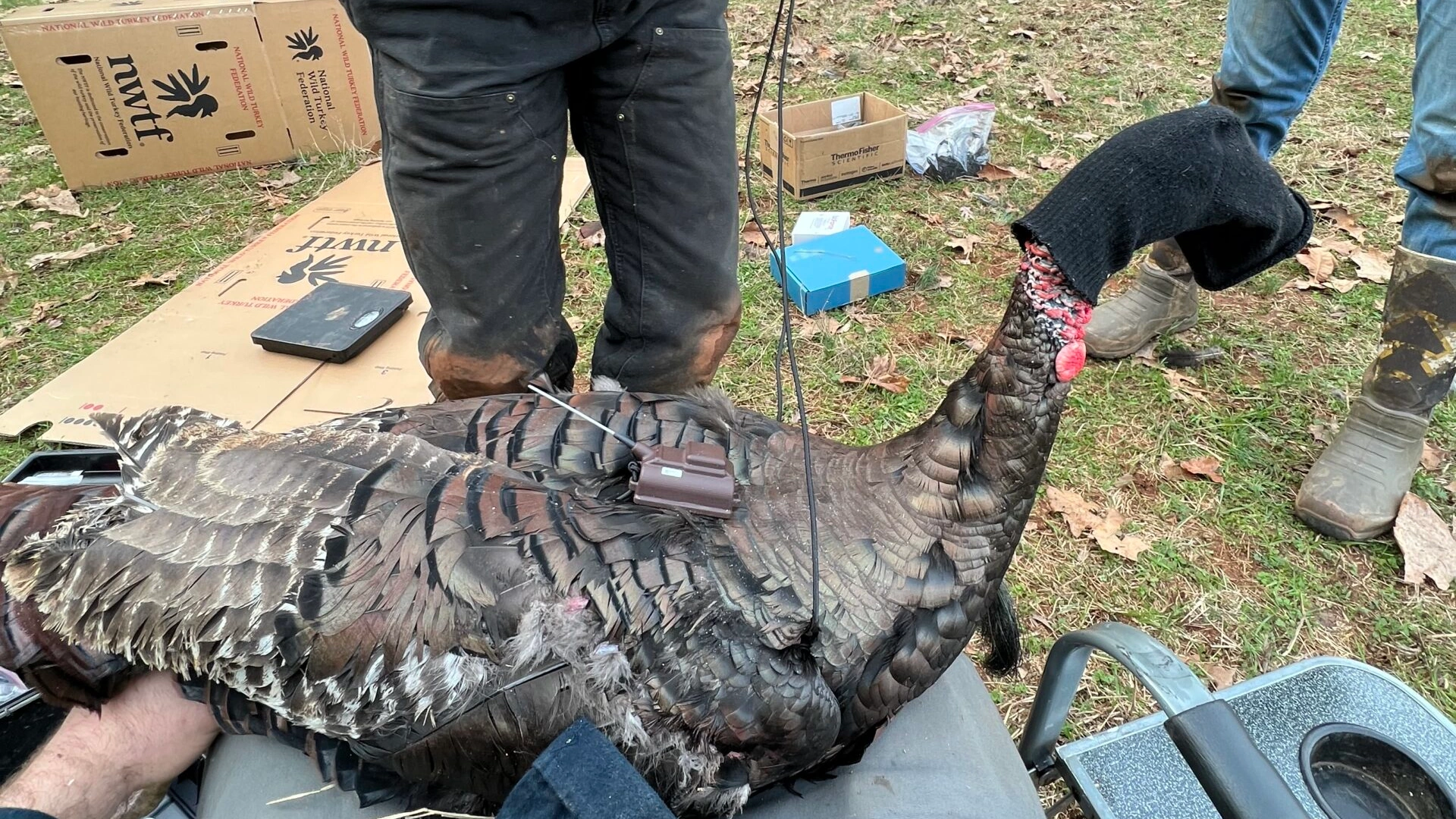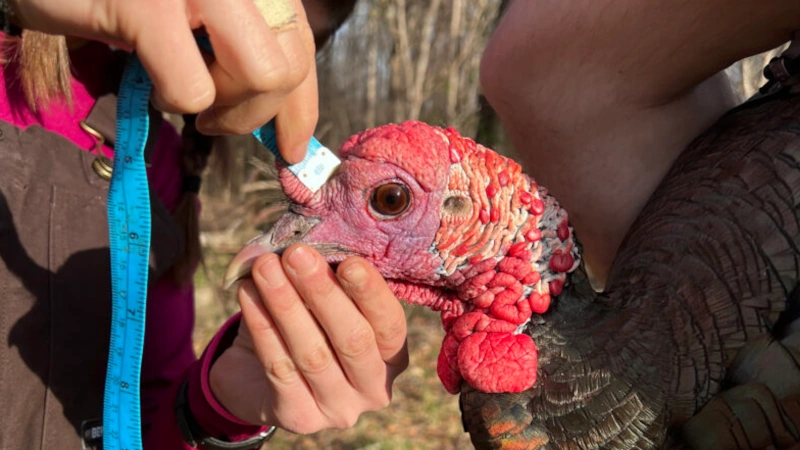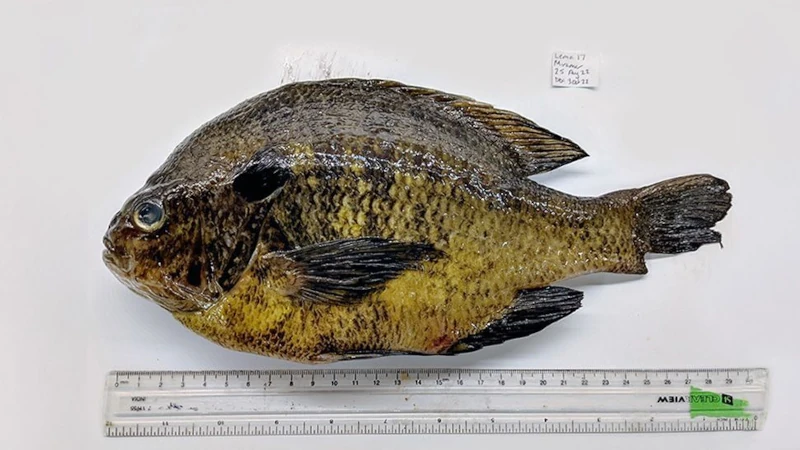UGA study says hunting patterns could influence future turkey harvest
The turkey may be the centerpiece of the Thanksgiving dinner table now, but harvesting the iconic holiday bird could become harder in the holidays to come.
If hunters continue to follow their current strategies and prey continue their same routine, turkeys may become tougher to harvest in the future, according to new research from the University of Georgia.
“Hunters should be willing to adapt because the turkeys are also adapting as well. If we continue to harvest individuals that are close to risky areas associated with hunters, turkeys will adjust their behavior and could become harder to detect and harder to harvest,” said Nickolas Gulotta, lead author of the study and a doctoral student in UGA’s Warnell School of Forestry and Natural Resources.
Gulotta studied risk-taking and exploratory behavior from 109 wild male turkeys across Georgia Wildlife management areas and how they acted in response to both hunters and predators. He and other researchers found that a turkey’s choice of movement and the level of risk associated were directly impacted by hunters and natural predators.
Bold birds don’t always benefit
Most of the tracked male turkeys showed frequently daring behavior.
They traveled close to areas where hunters parked their cars, popular trails and roads, as well as wide open areas. That’s great news for hunters — but not so great for the turkeys.
“If turkeys are closer to these open areas, it’s going to be easier for both a hunter and a predator to detect them. Across both study sites in general, turkeys that took more risks were more likely to be harvested,” Gulotta said.
That bodes well for the initial waves of hunters. But when future turkeys see how that turned out for their predecessors, they are unlikely to make those same choices.
That means hunters may have to get more creative to find the birds and be more patient.
“Turkeys are obviously adapting and learning that if you’re closer to risky areas, then there’s potential to be harvested. That’s why some of them are adopting less risky behaviors that essentially make them less detectable,” said Gulotta. “If hunters harvest birds that are riskier and more detectable, it could become more difficult to harvest turkeys because we could be left with a bunch of individuals that are harder to detect.”

Turkey receives GPS tracker for study. Credit: Nickolas Gulotta
Future fowl and humans can learn from each other
Individual behaviors of turkeys can of course vary, and overall survival techniques are something that can be inherited.
This study shows a need for tailored hunting strategies based on local conditions. If an area is patterned with the habitual actions of hunters, then turkeys could become harder to harvest over time. Gulotta said that could also have a long-term impact on hunting license sales and overall hunter satisfaction.
“The turkeys closer to areas that hunters use are the ones that are harvested,” Gulotta said. “So if we continue to harvest them like that across the Southeast, then there’s the potential that we could shift the behavioral strategies of wild turkeys making them more difficult to harvest.”
Published by the Royal Society, the study was co-authored by Patrick Wightman and Michael Chamberlain of UGA’s Warnell School of Forestry and Natural Resources and Bret Collier of Louisiana State University.
The post Fowl play: Why the hunt for Thanksgiving’s favorite bird could get tougher first appeared in UGA Today.



